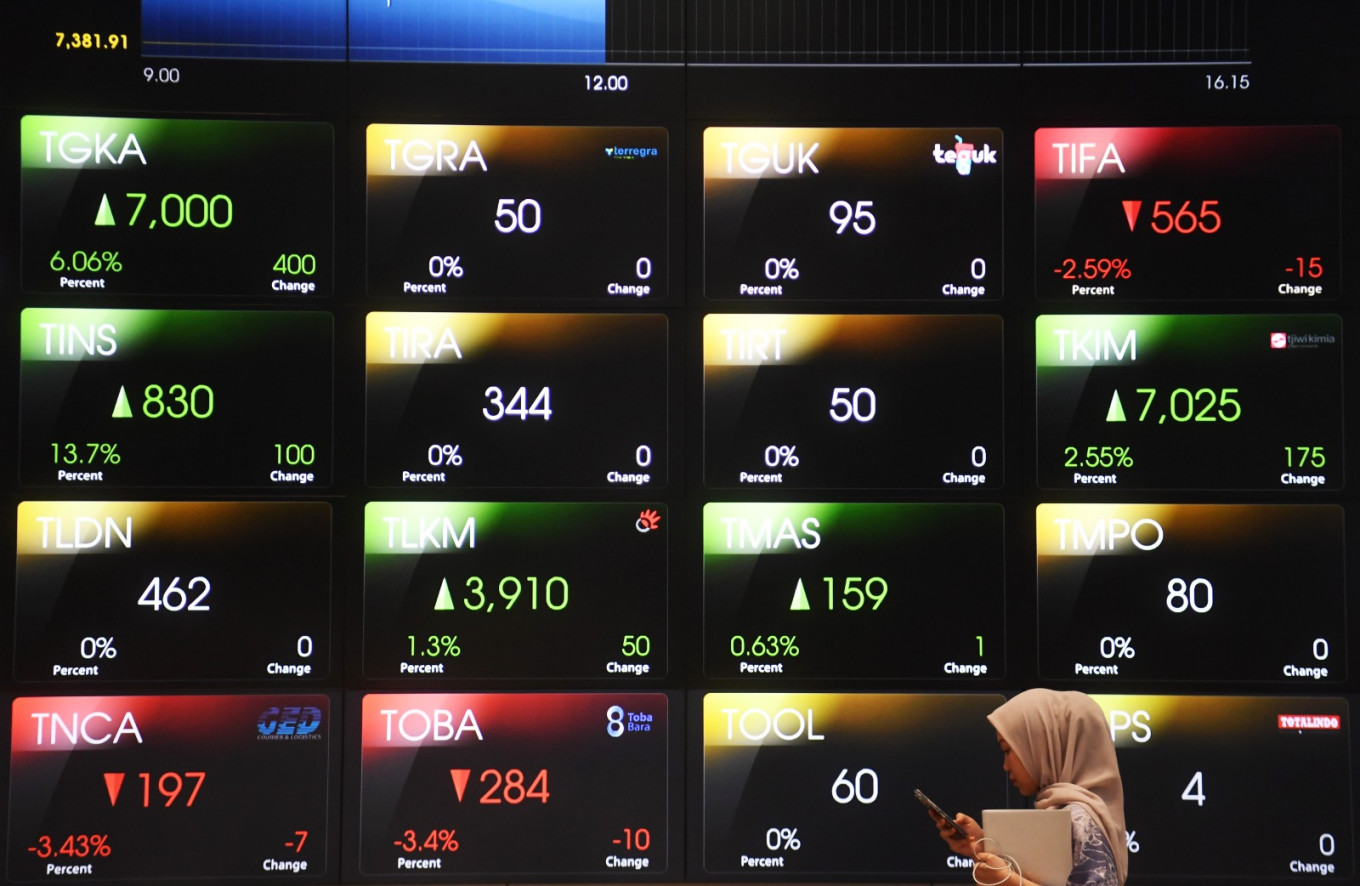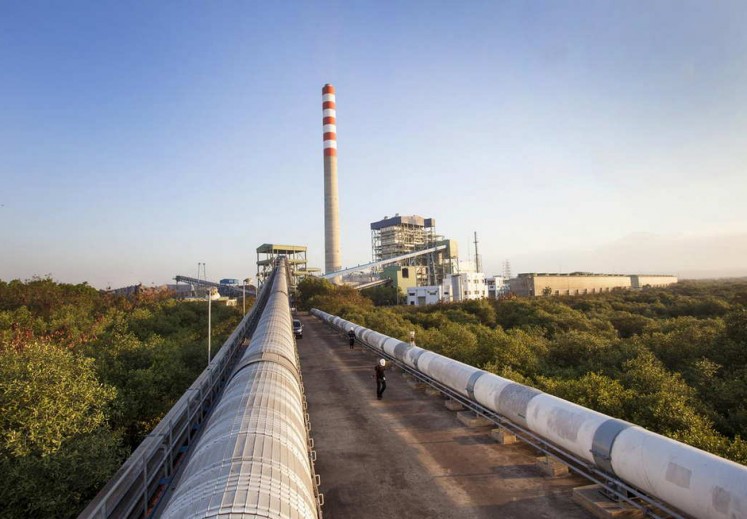Popular Reads
Top Results
Can't find what you're looking for?
View all search resultsPopular Reads
Top Results
Can't find what you're looking for?
View all search resultsIDX Composite closes 0.50% higher on Thursday
The IDX Composite (IHSG) strengthened by 0.50 percent to 7,166 on Thursday. The financial, infrastructure and non-primary consumer goods sectors supported the positive movement.
Change text size
Gift Premium Articles
to Anyone
T
he Indonesia Stock Exchange (IDX) Composite (IHSG) reversed course on Thursday, adding 0.50 percent to close at 7,166.81. The composite index previously recorded consecutive losses after reopening on Tuesday after the Idul Fitri holiday.
Three out of 11 sectoral indices curved upward, supporting the latest IDX Composite rise. The financial sector recorded the biggest gain of the day, rising by 0.82 percent. Infrastructure added 0.19 percent while non-primary consumer goods gained 0.04 percent.
On the other hand, the sector with the deepest decline was the health sector, falling by 1.06 percent. Following behind was the property sector, which fell by 0.75 percent, and the transportation sector, which lost by 0.71 percent.
Today, the stock exchange saw a total trading volume of 17.64 billion shares with a total value of Rp 13.79 trillion (US$852.15 million).
Like the IDX Composite, the LQ45 index also ended in the green at 935.51, adding 0.77 percent. Top gainers in the LQ45 on Thursday were PT Bank Syariah Indonesia (BRIS), which jumped by 4.84 percent, and PT Merdeka Battery Materials (MBMA), which added 4.63 percent, while PT ESSA Industries Indonesia (ESSA) ended 3.45 percent higher.
On the other hand, PT Harum Energy (HRUM) had the biggest loss, dropping 12.46 percent, followed by PT Charoen Pokphand Indonesia (CPIN) which was 4.24 percent lower and PT Medco Energi Internasional (MEDC) which shed 4.15 percent.
Ajaib Sekuritas analyst Ratih Mustikoningsih predicted on Thursday morning that the IDX Composite would weaken because of domestic and global factors.
“The IDX Composite is predicted to experience limited decline within the range of 7,050 to 7,160,” said Ratih, as quoted by the Antara news agency.
Domestically, the IDX Composite experienced correction for the second consecutive day, driven by profit-taking by market participants amid the weakening of the rupiah's exchange rate.
Meanwhile, Bank Indonesia reported that annual retail sales in February 2024 grew by 6.4 percent year-on-year. This followed a 1.1 percent increase in the previous months, a growth that was attributed to the momentum of the general election and the Ramadan fasting month.
Internationally, the British Office for National Statistics reported that the country’s annual inflation rate in March stood at 3.2 percent, lower than the previous month's 3.4 percent. This marked the lowest rate since September 2021.











